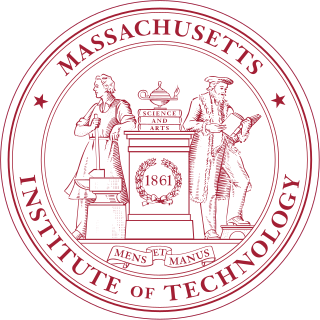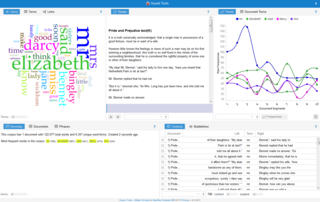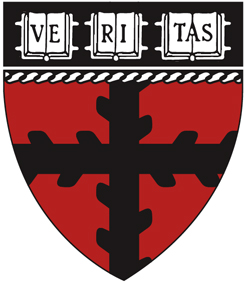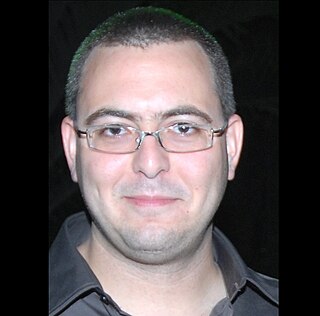
Computer science is the study of computation, information, and automation. Computer science spans theoretical disciplines to applied disciplines. Though more often considered an academic discipline, computer science is closely related to computer programming.

The Massachusetts Institute of Technology (MIT) is a private land-grant research university in Cambridge, Massachusetts. Established in 1861, MIT has played a significant role in the development of many areas of modern technology and science.

Privacy is the ability of an individual or group to seclude themselves or information about themselves, and thereby express themselves selectively.
Microsoft Research (MSR) is the research subsidiary of Microsoft. It was created in 1991 by Richard Rashid, Bill Gates and Nathan Myhrvold with the intent to advance state-of-the-art computing and solve difficult world problems through technological innovation in collaboration with academic, government, and industry researchers. The Microsoft Research team has more than 1,000 computer scientists, physicists, engineers, and mathematicians, including Turing Award winners, Fields Medal winners, MacArthur Fellows, and Dijkstra Prize winners.

Simson L. Garfinkel is a Program Scientist at AI2050, part of Schmidt Futures. He has held several roles across government, including a Senior Data Scientist at the Department of Homeland Security (DHS), the US Census Bureau's Senior Computer Scientist for Confidentiality and Data Access. and a computer scientist at the National Institute of Standards and Technology (2015-2017). Prior to that, he was an associate professor at the Naval Postgraduate School in Monterey, California (2006-2015). In addition to his research, Garfinkel is a journalist, an entrepreneur, and an inventor; his work is generally concerned with computer security, privacy, and information technology.

Digital humanities (DH) is an area of scholarly activity at the intersection of computing or digital technologies and the disciplines of the humanities. It includes the systematic use of digital resources in the humanities, as well as the analysis of their application. DH can be defined as new ways of doing scholarship that involve collaborative, transdisciplinary, and computationally engaged research, teaching, and publishing. It brings digital tools and methods to the study of the humanities with the recognition that the printed word is no longer the main medium for knowledge production and distribution.

Alex Paul "Sandy" Pentland is an American computer scientist, the Toshiba Professor of Media Arts and Sciences at MIT, and serial entrepreneur.

The Harvard John A. Paulson School of Engineering and Applied Sciences (SEAS) is the engineering school within Harvard University's Faculty of Arts and Sciences, offering degrees in engineering and applied sciences to graduate students admitted directly to SEAS, and to undergraduates admitted first to Harvard College. Previously the Lawrence Scientific School and then the Division of Engineering and Applied Sciences, the Paulson School assumed its current structure in 2007. Francis J. Doyle III has been its dean since 2015.

Data sharing is the practice of making data used for scholarly research available to other investigators. Many funding agencies, institutions, and publication venues have policies regarding data sharing because transparency and openness are considered by many to be part of the scientific method.
The Dataverse is an open source web application to share, preserve, cite, explore and analyze research data. Researchers, data authors, publishers, data distributors, and affiliated institutions all receive appropriate credit via a data citation with a persistent identifier.
Jefferson Morris Gill is Distinguished Professor of Government, and of Mathematics & Statistics, the Director of the Center for Data Science, the Editor of Political Analysis, and a member of the Center for Behavioral Neuroscience at American University as of the Fall of 2017.
Differential privacy (DP) is a system for publicly sharing information about a dataset by describing the patterns of groups within the dataset while withholding information about individuals in the dataset. The idea behind differential privacy is that if the effect of making an arbitrary single substitution in the database is small enough, the query result cannot be used to infer much about any single individual, and therefore provides privacy.
The social data revolution is the shift in human communication patterns towards increased personal information sharing and its related implications, made possible by the rise of social networks in the early 2000s. This phenomenon has resulted in the accumulation of unprecedented amounts of public data.

Data science is an interdisciplinary academic field that uses statistics, scientific computing, scientific methods, processes, algorithms and systems to extract or extrapolate knowledge and insights from noisy, structured, and unstructured data.
Catherine Tucker is the Sloan Distinguished Professor of Management at MIT Sloan, where she is also chair of the PhD program. She is known for her research into the consequences of digital data for electronic privacy, algorithmic bias, digital health, social media and online advertising. She is also a research associate at the NBER, cofounder of the Cryptoeconomics lab at MIT with Christian Catalini and coeditor at Quantitative Marketing Economics.

Yaniv Altshuler, is an Israeli computer scientist and entrepreneur. He is a researcher at the MIT Media Lab, at the Human Dynamics group headed by professor Alex Pentland.

Samer Hassan is a computer scientist, social scientist, activist and researcher, focused on the use of decentralized technologies to support commons-based collaboration. He is Associate Professor at Universidad Complutense de Madrid (Spain) and Faculty Associate at the Berkman Klein Center for Internet & Society at Harvard University. He is the recipient of an ERC Grant of 1.5M€ with the P2P Models project, to research blockchain-based decentralized autonomous organizations for the collaborative economy.
The Center for Research on Computation and Society is a research center at Harvard University that focuses on interdisciplinary research combining computer science with social sciences. It is based in Harvard John A. Paulson School of Engineering and Applied Sciences. It is currently directed by Milind Tambe.
Michael P. McDonald is an American political scientist. He is a Professor of Political Science at the University of Florida where he focuses on the United States elections.
Automated decision-making (ADM) involves the use of data, machines and algorithms to make decisions in a range of contexts, including public administration, business, health, education, law, employment, transport, media and entertainment, with varying degrees of human oversight or intervention. ADM involves large-scale data from a range of sources, such as databases, text, social media, sensors, images or speech, that is processed using various technologies including computer software, algorithms, machine learning, natural language processing, artificial intelligence, augmented intelligence and robotics. The increasing use of automated decision-making systems (ADMS) across a range of contexts presents many benefits and challenges to human society requiring consideration of the technical, legal, ethical, societal, educational, economic and health consequences.











